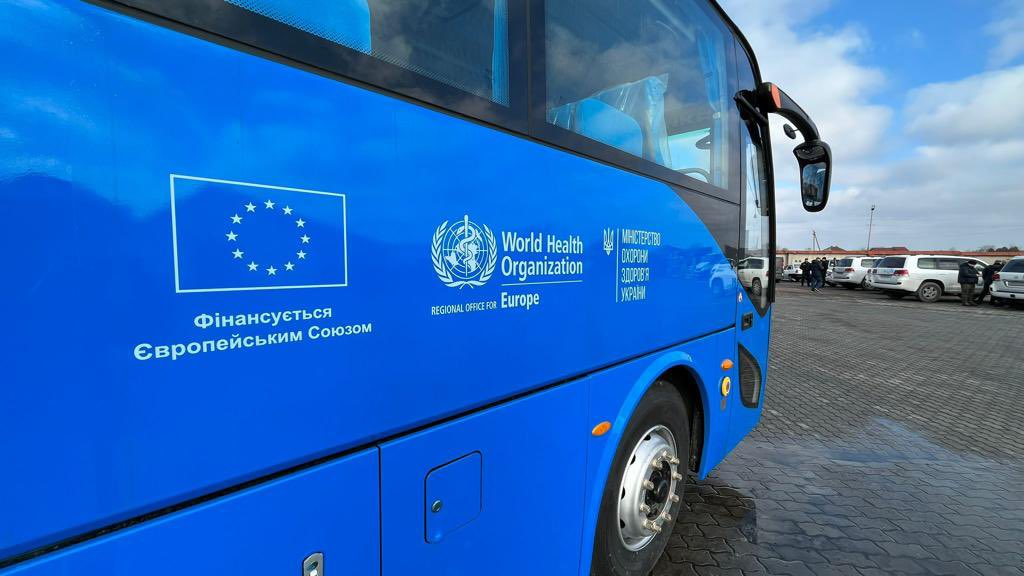Since the first missiles were fired into Ukraine in February 2022, health systems have been badly affected. In some cities, hospitals and clinics have been destroyed. Others face disruption due to electricity outages.
Immunisation services have not been spared: children have missed out on routine vaccination, COVID-19 vaccination clinics have been struck, and disease surveillance systems have effectively collapsed in many urban centres. Ukraine recorded 57,000 cases of measles in 2019 and, prior to the attack, had vaccine uptake rates significantly lower than many of its neighbours.
The war-struck nation continues to engage with international partners on public health challenges, notably the global effort to eradicate polio. In late 2022, two cases of vaccine-derived polio were picked up by the Ukraine National Reference Laboratory and reported to the Global Polio Eradication Initiative (GPEI). A catch-up inactivated polio vaccination campaign is ongoing, targeting 135,000 children.
This month, the World Health Organization (WHO) office in Ukraine, supported by the European Union, launched a new effort to strengthen vaccination against infectious diseases, including COVID-19, measles and diphtheria using mobile clinics. A key target group will be internally displaced persons (IDPs), along with older people, those with chronic conditions and populations in remote areas.

The EU has donated a fleet of 59 buses to the Ukraine Ministry of Health. The specially-equipped buses will be staffed by mobile and outreach teams that will travel across all regions under the control of the Ukraine government. Each of the buses has wheelchair access, allowing elderly people to get on board easily.
‘Vaccination coverage has been significantly impacted over the past year of war, and these buses will help ensure that Ukraine continues on its journey to ensure IDPs and the most vulnerable populations can more easily access vaccines against diseases that could prove deadly,’ said Dr Hans Henri P. Kluge, WHO Regional Director for Europe, on a visit to Ukraine.
‘Out of 35 million doses of COVID-19 vaccines delivered in-country since the beginning of the pandemic, only 4 million doses (11%) have been implemented after 24 February 2022,’ he added. ‘We also observe routine immunisation efforts facing challenges as a result, and we are preparing to address the risks of outbreaks of measles and diphtheria.’
Dr Ihor Kuzin, Deputy Minister of Health in Ukraine, said, ‘Thanks to our partners, the donated buses will greatly strengthen the regional centres for disease control and prevention so that we can strengthen routine immunisation and reach as many people as possible with vaccinations against COVID-19. A special focus will be on IDPs, people with limited mobility, and people living in hard-to-reach areas.’

The latest donations mark an ongoing effort by donors to minimise the long-term public health impact of the war in Ukraine and the wider European region. From April to December 2022, with WHO support in partnership with the EU and USAID, up to 400,000 people across 1,500 locations in eight regions have been reached with outreach immunisation services in Ukraine.
‘The donation of these buses today marks an important step to help strengthen the vaccination drive in Ukraine and ensure the most vulnerable are being protected against infectious diseases,’ said Martin Schroeder, Head of Section on Human and Local Development at the European Union Delegation to Ukraine. ‘We plan to continue our partnership with WHO in Ukraine and the Ministry of Health to ensure that Ukraine’s public health system is supported in this challenging period of full-fledged Russian war and beyond.’
Meanwhile, several countries, including Poland and Romania, that have welcomed large numbers of refugees from Ukraine are working to ensure access to immunisation services. People from the Ukraine are entitled to health, education, social and other services in EU countries under the European Temporary Protection Directive.



